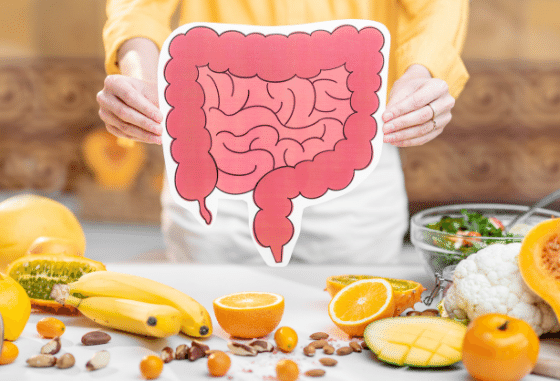
A leaky gut occurs when the lining of your intestines becomes permeable, allowing harmful substances to leak into your bloodstream.
It can trigger an immune response and chronic inflammation, leading to a range of health problems such as food sensitivities, autoimmune diseases, and digestive issues.
The leaky gut diet is aimed at reducing inflammation in the gut, promoting healing, and improving overall gut health.
This diet is more about the foods that heal a leaky gut and the food you need to avoid. You should also consider dietary supplements and natural remedies that can help improve gut function.
I. Foods to Avoid for Healing Leaky Gut
Before getting to the list of what you can eat, let’s first discuss the foods you should not eat if you want to help heal and prevent a leaky gut. Prevention is always better than cure.
Read more: Leaky Gut Triggers: What You Need to Know to Protect Your Health
In general, you should avoid potential allergens and inflammatory foods such as:
1. Snacks high in sugar

Snacks that are high in sugar can also contribute to inflammation and damage to the gut lining. These include candy, cookies, and other sugary treats.
Regular consumption of drinks and foods high in added sugar leads to obesity and metabolic disorders (1).
While sugar does provide a quick boost of energy, it is definitely not the optimal energy source pre or post-workout. It upsets the balance of gut bacteria which in turn leads to increased gut permeability (2).
Instead, opt for snacks like nuts, seeds, and fruits, which are high in fiber and essential nutrients.
2. Gluten-containing grains
Gluten is a protein found in wheat, barley, and rye, and can be difficult for some people to digest.
It can also contribute to inflammation in the gut, making it important for those with leaky gut to avoid gluten-containing grains.
Avoiding gluten is not an easy task as most processed foods contain gluten. Unless specified gluten-free, almost all baked goods including cookies, cakes, muffins, bread, buns, and so on are made of refined wheat.
Those suffering from celiac disease cannot tolerate gluten in any manner. However, people with other types of autoimmune disorders also tend to be gluten intolerant (3).
Considering the link between gliadin and zonulin, attempting a gluten-free diet for a while is advisable to see if there is any improvement in the symptoms.
(To know more about the link between gliadin and zonulin, read: The Real Science Behind Leaky Gut Syndrome: Separating Fact from Fiction )
You can have gluten-free grains like quinoa, rice, and oats.
3. Unhealthy fats

Trans fats and saturated fats found in fried foods and processed snacks can also contribute to inflammation and damage to the gut lining.
Try to limit your intake of these types of fats and instead opt for healthier fats like those found in nuts, seeds, and fatty fish.
4. Processed foods
Processed foods are often high in sugar, unhealthy fats, and additives that can contribute to inflammation and damage to the gut lining.
These foods also lack the essential nutrients needed for optimal gut health.
Instead of processed foods, try opting for whole, natural foods like fruits, vegetables, and whole grains.
5. Dairy products
Dairy products can be difficult to digest for some people and can contribute to inflammation and damage to the gut lining.
If you are experiencing symptoms of a leaky gut, it may be helpful to eliminate dairy products from your diet. Instead, try alternative sources of calcium and protein like leafy greens and nuts.
6. Artificial sweeteners and additives
Artificial sweeteners and additives found in processed foods and drinks can also contribute to inflammation and damage to the gut lining.
Opt for natural sweeteners like honey or maple syrup and try to choose whole, natural foods instead of processed ones.
7. Alcohol

Alcohol can also contribute to inflammation and damage to the gut lining.
It is important to limit or eliminate alcohol consumption to help prevent and heal leaky gut.
8. Caffeine
Caffeine is a stimulant that can increase stress levels and contribute to inflammation in the gut.
Try to limit your intake of caffeine and opt for herbal teas or other non-caffeinated drinks instead.
II. Foods to Include in a Leaky Gut Diet
Here are some of the best foods to include in a leaky gut diet:
1. Non-Starchy Vegetables
Non-starchy vegetables are an excellent addition to a leaky gut diet because they are rich in fiber and nutrients that promote gut health.
Vitamin deficiencies, especially that of vitamin C are said to be one of the causes of leaky gut (4). So have plenty of citrus fruits and vegetables high in this vitamin.
- Leafy greens: Spinach, kale, arugula, collard greens, and other leafy greens contain high levels of antioxidants that reduce inflammation in the body.
- Cruciferous vegetables: Broccoli, cauliflower, and other cruciferous vegetables are rich in sulfur-containing compounds that help reduce inflammation and support liver function. Cruciferous vegetables and green leafy vegetables both provide plenty of folates which tend to be deficient in a gluten-free diet.
- Other non-starchy vegetables: Bell peppers, zucchini, mushrooms, and other non-starchy vegetables are excellent sources of fiber and other nutrients that help support digestive health.
2. Fermented Foods
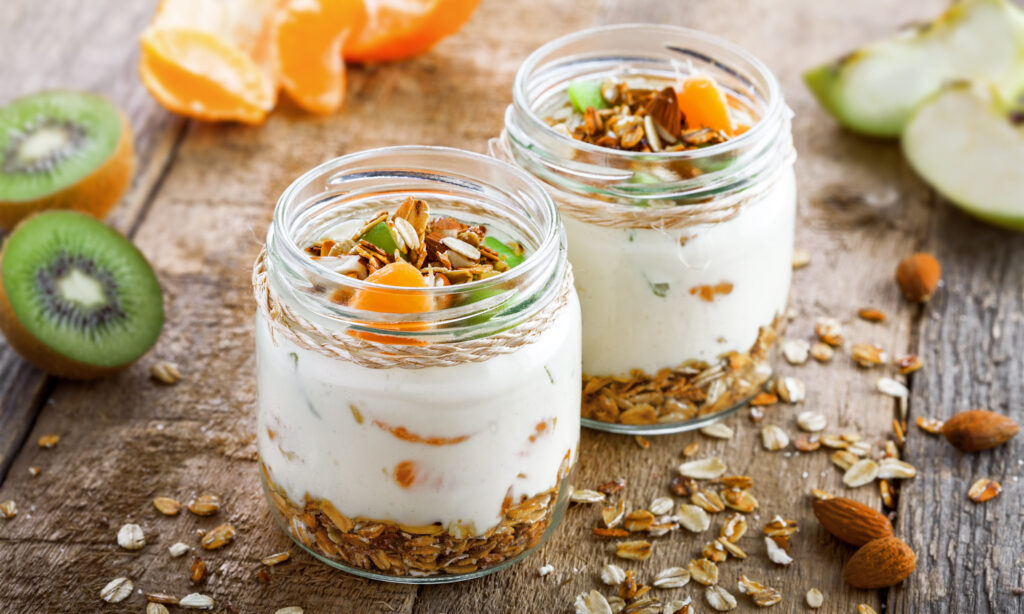
Fermented foods are an excellent source of probiotics, which are beneficial bacteria that can help restore the balance of the gut microbiome.
Probiotics help increase the levels of vitamin D and also soothe intestinal inflammation.
Studies are being conducted to determine what strains and dosages are most effective (5).
Gut bacteria help in the digestion and absorption of nutrients. They stimulate immunity and prevent colonization by harmful bacteria.
Having a good balance of gut bacteria has been shown to improve your mood.
- Yogurt: Yogurt contains beneficial bacteria that help populate the gut microbiome and reduce inflammation in the gut. Look for plain, unsweetened yogurt for the most benefits.
- Kefir: Kefir is a fermented milk drink that contains probiotic bacteria and yeast. It’s a great option for those who can tolerate dairy.
- Sauerkraut: Sauerkraut is fermented cabbage that contains beneficial bacteria and enzymes that support gut health.
- Kimchi: Kimchi is a spicy Korean dish made from fermented vegetables. It’s a great source of beneficial bacteria and antioxidants.
- Kombucha: Kombucha is a fermented tea that contains probiotic bacteria and yeast. It’s a great option for those who want to reduce their sugar intake.
3. Healthy Fats
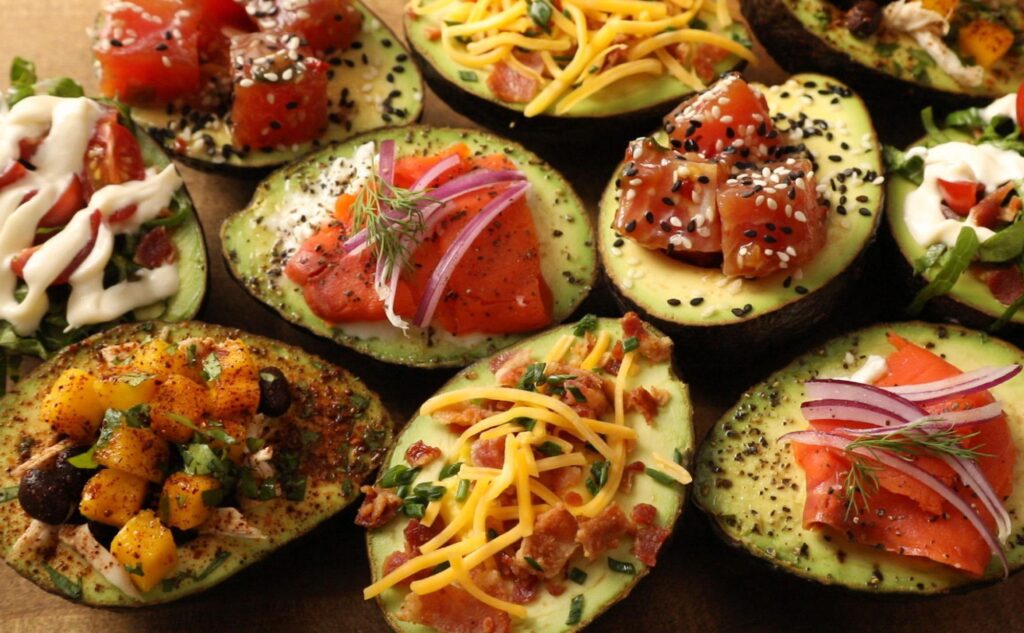
Healthy fats are essential for gut health because they help reduce inflammation and provide energy for the cells lining the gut.
- Avocado: Avocados are a great source of healthy monounsaturated fats and fiber that help support digestive health and reduce inflammation in the body.
- Olive oil: Olive oil is a healthy source of monounsaturated fats that reduce inflammation in the body and support heart health.
- Nuts and seeds: Nuts and seeds are great sources of healthy fats, fiber, and other nutrients that support digestive health. Almonds, walnuts, chia seeds, and flaxseeds are all good options.
- Coconut oil: Coconut oil contains medium-chain fatty acids that are easy to digest and support gut health. Coconut oil has the ability to soothe and helps heal the intestinal lining (6). The MCFAs in coconut are easy to digest and they provide instant energy. The saturated fats present in coconut oil have antimicrobial and antifungal properties. It also aids the absorption of nutrients in the gut.
4. Lean Protein Sources
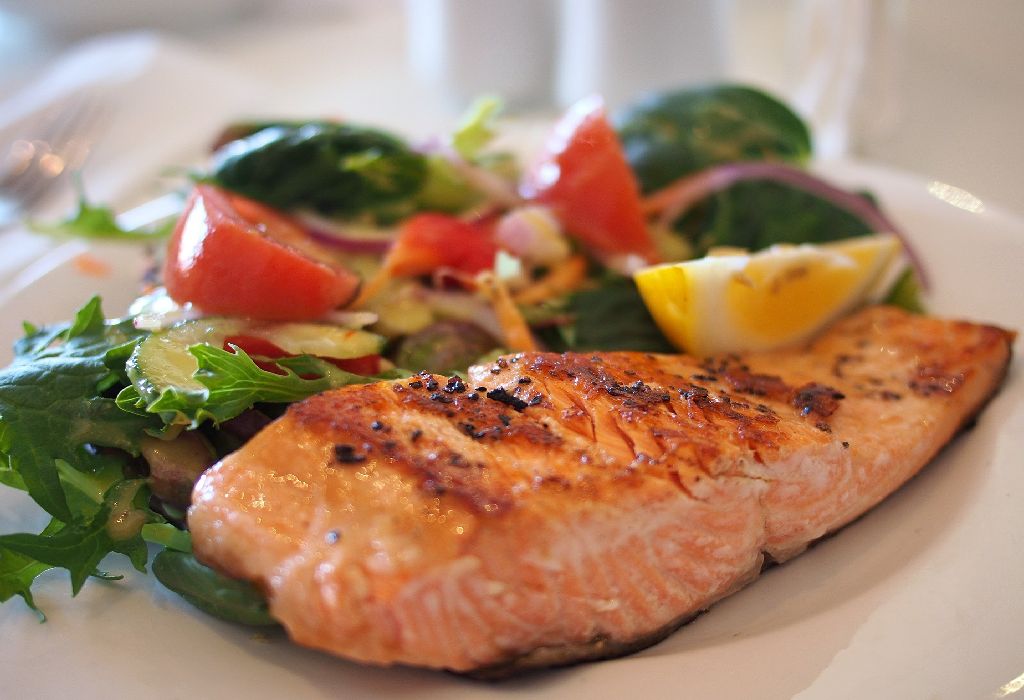
Lean protein sources are essential for repairing and building the cells in the gut lining. Fat-soluble vitamin D is found in fatty fish and egg yolk.
A deficiency of vitamin D is linked to numerous gut disorders including Irritable bowel syndrome (IBS) and colon cancer. Vitamin D had antibacterial properties that ward off infection in the gut.
- Chicken: Chicken is a great source of lean protein that’s easy to digest and provides essential amino acids.
- Fish: Fatty fish like salmon, tuna, and mackerel are rich in omega-3 fatty acids that reduce inflammation in the body and support heart health.
- Turkey: Turkey is another lean protein source that’s easy to digest and provides essential amino acids.
- Plant-based proteins: Legumes, tofu, tempeh, and other plant-based proteins are excellent options for those who don’t eat meat. They’re also rich in fiber and other nutrients that support gut health.
III. Natural Supplements and Remedies to Support Gut Health
If you’re looking for natural ways to support your gut health, incorporating certain supplements and remedies into your daily routine can be helpful.
1. Digestive Enzymes
These are natural substances that help break down the food we eat, making it easier to digest and absorb nutrients.
Digestive enzymes can be found in supplement form, or in certain foods like pineapple and papaya.
If you’re struggling with digestive issues, taking a digestive enzyme supplement with meals may be helpful.
2. Aloe Vera
This is a plant with anti-inflammatory and antioxidant properties that can be helpful for gut health.
Aloe vera juice or supplements can help soothe the digestive tract and reduce inflammation in the gut.
However, it’s important to use caution when taking aloe vera, as high doses can have laxative effects.
3. Bone Broth
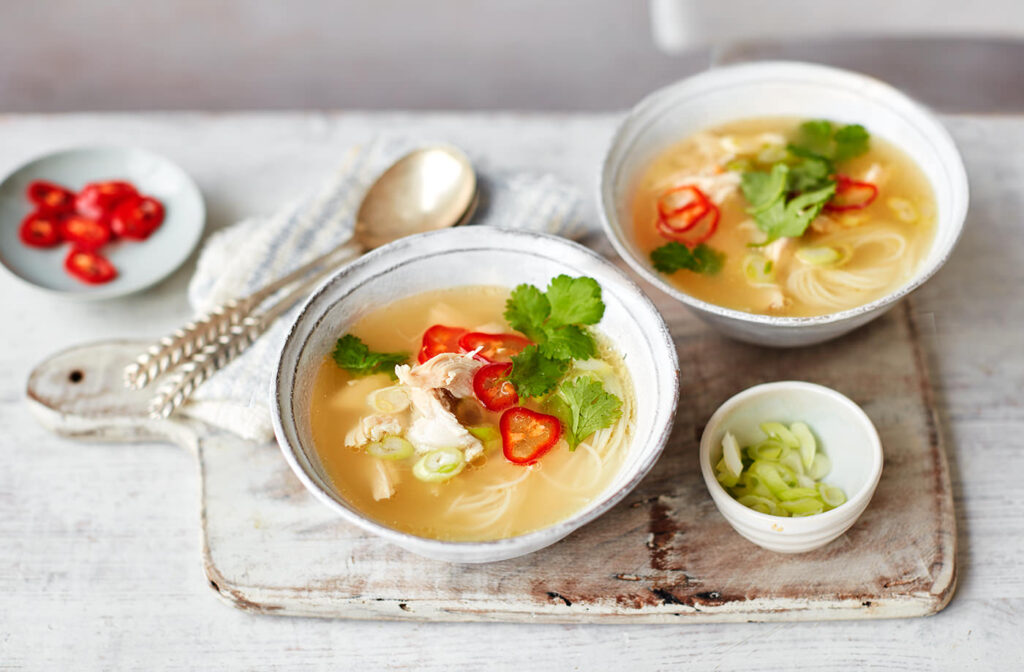
This is a nutrient-rich broth made by simmering bones, vegetables, and herbs.
Bone broth is high in collagen and amino acids, which can support gut health by improving the integrity of the gut lining. It contains glutamine.
Drinking bone broth regularly may also help reduce inflammation in the gut and promote healing.
4. Glutamine
Glutamine is an amino acid that is utilized as a fuel source by the gut cells. It’s important for maintaining the health of the cells lining your gut.
Bone broth, grass-fed beef, chicken, fish, eggs, spirulina, cabbage, asparagus, and broccoli are some of the best food sources for glutamine.
Significant improvement in intestinal permeability was observed in patients supplemented with glutamine, (7). Researchers have noted that glutamine can alleviate the damage to the gut barrier caused by trauma and help modulate the immune function of the small intestinal mucosa (6).
Taking a glutamine supplement may help reduce inflammation in your gut and support the healing of the intestinal lining. Intravenous glutamine injections are given to patients with Crohn’s disease to reduce inflammation (8).
IV. Tips for Incorporating Leaky Gut-Friendly Foods into Your Diet
If you’re looking to incorporate more gut-friendly foods into your diet, it’s important to keep a few things in mind.
1. Meal planning and preparation
Having healthy options readily available can make it easier to stick to your goals.
Consider setting aside some time each week to plan out your meals and snacks, and prepare any ingredients you’ll need in advance.
This can help you avoid reaching for unhealthy options when you’re short on time or feeling hungry.
2. Choose whole, nutrient-dense foods
Focus on including plenty of fresh vegetables, lean proteins, and healthy fats in your meals.
This can help provide your body with the nutrients it needs to support healthy gut function.
When shopping for ingredients, try to opt for whole, unprocessed foods whenever possible. These can include things like fresh produce, lean meats, and whole grains.
3. Add more variety
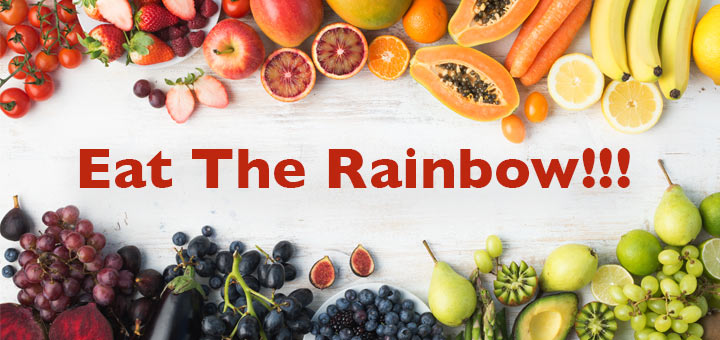
Incorporating variety and balance into your diet can also be helpful when working to support gut health.
This can mean experimenting with new ingredients, trying new recipes, and incorporating a variety of different foods into your meals.
Aim to include a mix of different colors, textures, and flavors in each meal, and try to avoid relying too heavily on any one type of food.
4. Get support
Seek guidance from a healthcare professional if you have concerns about your gut health or are looking to make significant changes to your diet.
A doctor or registered dietitian can help you develop a personalized plan that meets your unique needs and goals. They can also provide guidance on supplements, natural remedies, and other strategies for supporting gut health.
5. Address deficiencies
Nutritional deficiencies can weaken the intestinal barrier. Correcting these deficiencies is important for healing the leaky gut.
- Zinc strengthens the intestinal barrier (9) Amaranth is a good source of zinc for vegetarians. Non-vegetarians can get it from oysters, beef, liver, and seafood.
- Supplementing with magnesium, zinc, and Coenzyme Q10 can help address stress response and assist in healing a leaky gut.
- Omega fatty acids are another food supplement that has a whole host of benefits to it including helping repair a leaky gut.
V. Conclusion
Fortunately, making changes to your diet can play a crucial role in improving your gut health and alleviating the symptoms of a leaky gut.
There is a simple protocol that works wonders in treating a leaky gut and it is quite easy to implement:
- Identify and remove foods and lifestyle triggers that damage the gut
- Replace such foods with healing foods
- Identify deficiencies and include specific supplements in the diet
- Have plenty of probiotics and re-balance the gut flora
Incorporating these leaky gut-friendly foods into your diet may seem challenging at first, but it’s worth the effort in the long run.
To make it easier, I recommend meal planning and preparation, choosing whole, nutrient-dense foods, incorporating variety and balance, and seeking guidance from a healthcare professional.
Remember, improving your gut health doesn’t happen overnight, but small changes to your diet can make a big difference in how you feel. I encourage you to take care of your gut health and explore additional resources, such as probiotics, digestive enzymes, glutamine, aloe vera, and bone broth.
